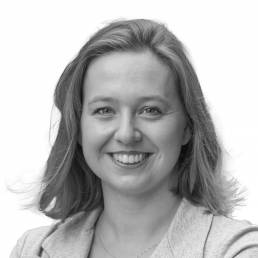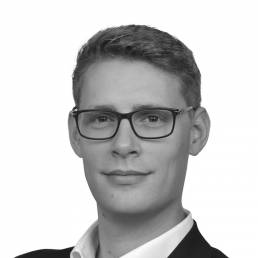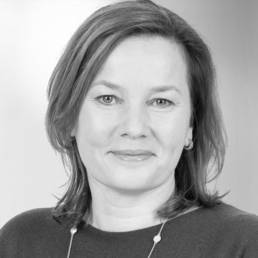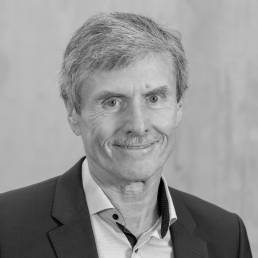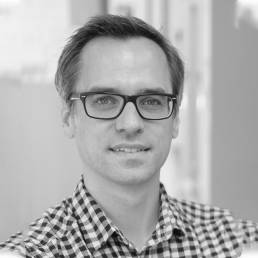10th RUHR-Symposium
Artificial Intelligence for Functional Materials
Thursday, October 10th, 2024
Artificial Intelligence (AI) is revolutionizing materials science by bridging the gap between research and industry. By collecting and analyzing high-quality datasets, AI identifies hidden patterns and enables the development of complex material structures with specific properties.
AI supports automation and autonomous processes in material production, enhancing efficiency and reducing costs. With digital twins, material behavior and lifespan can be accurately predicted, improving product reliability and safety.
The integration of AI accelerates innovation and creates sustainable solutions through close collaboration between science and industry.
Künstliche Intelligenz (KI) revolutioniert die Materialwissenschaften, indem sie die Brücke zwischen Forschung und Industrie schlägt. Durch die Erhebung und Analyse hochwertiger Datensätze erkennt KI verborgene Muster und ermöglicht die Entwicklung komplexer Materialstrukturen mit spezifischen Eigenschaften.
KI unterstützt die Automatisierung und autonome Prozesse bei der Materialherstellung, verbessert die Effizienz und senkt Kosten. Mit Digital Twins können Materialverhalten und Lebensdauer präzise vorhergesagt werden, was die Zuverlässigkeit und Sicherheit von Produkten erhöht.
Die Integration von KI beschleunigt Innovationen und schafft nachhaltige Lösungen durch die enge Zusammenarbeit von Wissenschaft und Industrie.
Oktober 19th, 2022
The Ruhr Symposium explores the pivotal role of functional materials in advancing the principles of a circular economy. By embracing the principles of reducing, reusing, and recycling, the circular economy aims to decouple economic growth from resource consumption and environmental degradation. Functional materials, with their unique properties and capabilities, enable innovative approaches and transformative technologies for sustainable solutions. This gathering provides a platform for multidisciplinary discussions and collaboration among researchers, industry professionals, and policymakers to drive the implementation of functional materials in a circular economy. Enjoy the conference!
Industrial and Academical Partnerships
Session I: CAT – Catalytic Center
Session II: BasCat – UniCat BASF JointLab
Session III: PrometH2eu
Session IV: Full cell implementation of catalyst materials for fuel cells
Session V: HTE4CAT - Catalyst Discovery
Over 200 developers and researchers
from industry and science
Keynotes, Tandem-Sessions
(Industry/Science) & Exhibition
Speaker 2021
November 3rd, 2021 Duisburg
Prof. Malte Behrens
Institute of Inorganic Chemistry, Kiel University
Prof. Harry Hoster
Scientific Director, The hydrogen and fuel cell center ZBT GmbH
Prof. Anna Mechler
Electrochemical Reaction Engineering, RWTH Aachen University
Dr. Emanuele Instuli
Head of Analytical Chemistry Group, De Nora, Italy
Prof. Wolfgang Schuhmann
Chair of Analytical Chemistry, Ruhr-Universität Bochum
Prof. Doris Segets
Process Technology for Functional Electrochemical Materials, University of Duisburg-Essen
Dr. Günter Schmid
Principal Key Expert Research Scientist, Siemens Energy Global GmbH & Co. KG
Prof. Walter Leitner
Management Board CAT, Chair of Technical Chemistry and Petrochemistry, RWTH Aachen University
Dr. Christoph Guertler
Head of Catalysis and Technology Incubation, Covestro AG
Prof. Matthias Drieß
Scientific Director BasCat UniCat BASF JointLab / Metalorganics and Inorganic Materials, Department of Chemistry, TU Berlin
Dr. Frank Rosowski
Scientific Director BasCat UniCat BASF JointLab / Process Research and Chemical Engineering, BASF SE
Lars Banko
Founder, Start-up Materials Space Exploration
Olga Anna Krysiak
Founder, Start-up Materials Space Exploration
Dr. Florian Eweiner
Team Leader Innovation, Heraeus Group
Dr.-Ing. Peter Beckhaus
Managing Director, The hydrogen and fuel cell center ZBT GmbH
We are pleased to announce that we will be holding the successful Ruhr Symposium format for the eighth time this year. This event, which is characterized by the combination of representatives from academic research and industry in tandem lectures, will this year be dedicated to the topic of „Functional Materials for Hydrogen“.
A special feature of this year’s event is the scheduling of the Ruhr Symposium together with the Duisburg Future Talks, a public panel discussion sponsored by the MERCATOR Foundation and organized by Duisburg Business & Innovation and the Hy.Region.Rhein.Ruhr association.
Between the symposium and the Duisburg Future Talks, which will take place as an evening event at the Fraunhofer inHaus Center, there will be an interesting bridge program, where we invite representatives from industry and the public to visit the NETZ building and the ZBT.


